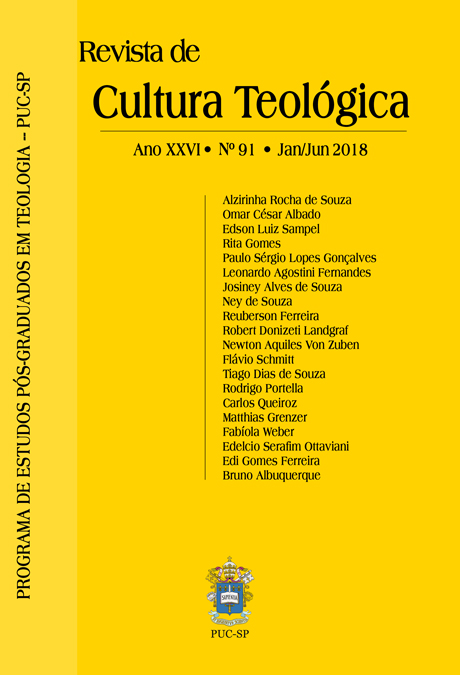The body, the seed and the fruit: the pauline anthropology between the symbolic and the conceptual in his discourse on the human being and his resurrection
DOI:
https://doi.org/10.23925/rct.i91.35923Keywords:
Paul of Tarsus, Resurrection, Anthropology of Paul, EschatologyAbstract
Modernity, and particularly postmodernity, has put human identity in crisis, its why and for what. In the face of ever more decritianized and secularized Western societies, it is necessary for the theologian and scientist of religion to dwell on religious traditions to verify what they convey in their anthropology. In the specific case of the present article, the intention is to clarify how Christianity, particularly the apostle Paul, understands the human being. However, since this task is beyond an article, we can clarify Paul's view of the human being from a point that we consider to be key to his anthropology: the resurrection, the new human being, particularly described in 1Co 15. We understand that Paul builds much of his anthropology from the view he has on the eschatological future of man, for in him would be the true measure of the human being united to God, that is, his full realization. However, in order to arrive at this vision foretold by Paul, it will be necessary, even if quickly, to go through some of his concepts when referring to the human being in various situations, and to understand how such concepts construct Pauline anthropology and point out for his conception of resurrection / new human being. Finally, the intention of this article is to present a possible interpretation about the human being, and his future, from the Pauline Christian view. We understand that such an attempt, made with conceptual precision, helps to understand the anthropological view of one of the great religions at a time lacking synthetic perspectives and meaning about who the human being is, and what it is intended for.Downloads
Published
2018-07-07
How to Cite
Portella, R., & Queiroz, C. (2018). The body, the seed and the fruit: the pauline anthropology between the symbolic and the conceptual in his discourse on the human being and his resurrection. Revista De Cultura Teológica, (91), 245–268. https://doi.org/10.23925/rct.i91.35923
Issue
Section
Artigos


